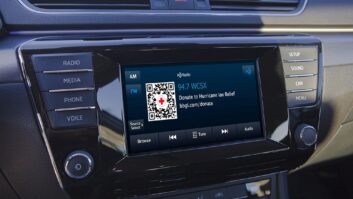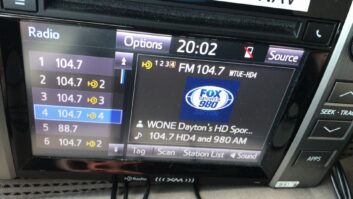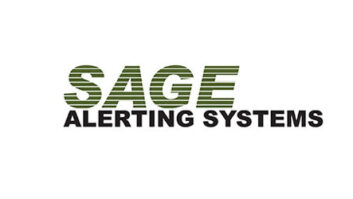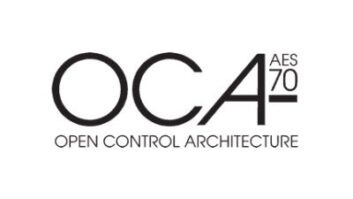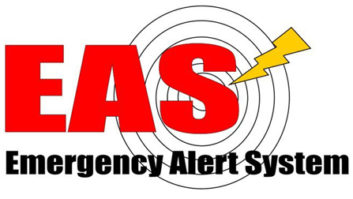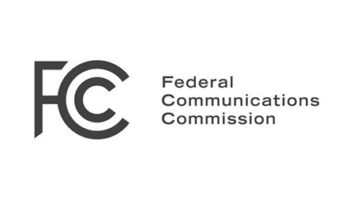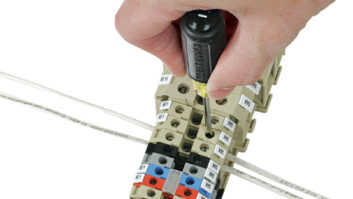IBOC Update – Mar 8, 2006
Mar 8, 2006 10:52 AM, By Mark Krieger, CBT
Index:
- NAB Asks FCC to Block XM acquisition of WCS
- Chicago to offer Broadband Access Citywide
- Ferguson Waves Digital Broadcast Flag Before Congress
- XM Canada Subscriptions on Track, says Tapp
- Shenefield to Head Receiver Development at Worldspace
- Kahn Lawsuit May Serve as Waypoint
- IBOC by State: Kansas
- An Introduction to the New Language Surrounding HD Radio
Stay up to date on the latest IBOC news, business and technology information with the twice-monthly newsletter from Radio magazine.NewsNAB Asks FCC to Block XM acquisition of WCS
The National Association of Broadcasters (NAB) forwarded a letter to FCC Chairman Kevin Martin last week strongly urging the FCC to block XM Satellite Radio from acquiring 16 blocks of wireless communication services spectrum from current license holder WCS Wireless.The action comes as the Commission considers whether to permit XM to move ahead with the proposed purchase of WCS assets now that windows for public comment and reply in the matter have expired.Opponents of the acquisition, which include the NAB and Sirius Satellite Radio, cite several reasons to deny the acquisition. These charges include the possibility that WCS may have violated anti-trafficking provisions governing the wireless spectrum it now holds, and that XM has failed to adequately explain how it would use the L-Band spectrum, contiguous to the existing SDARS allocations now occupied by XM and Sirius. The NAB and Sirius believe that XM intends to use the spectrum to incorporate localized content via a new terrestrial network, an application they say would violate existing FCC sanctions against using SDARS repeaters for localized content delivery.In making its point, the NAB said, “even if at this late date the applicants were to provide sufficient information for the Commission to determine that the proposed transaction serves some elements of the public interest, conditions will clearly be necessary to ensure that XM does not circumvent the SDARS Authorization.”Sirius and WCS spectrum stakeholders have also tendered documents that suggest XM’s proposed operations could result in the generation of interference-inducing intermodulation products on WCS and SDARS frequencies.The FCC is expected to render a decision in the matter soon.Chicago to offer Broadband Access Citywide
Chicago will soon join cities like Philadelphia in offering wireless broadband access to consumers citywide–extending its existing wireless blanket to all 228 square miles. The city plans to ask technology companies this spring to submit proposals for the project.City officials spearheading the project have not yet said at what price point the service will be made available but, in Philadelphia, Earthlink is building a similar network that will charge a wholesale monthly rate of $9/sub to ISP’s for resale to consumers.Observers in the electronic media industries are keeping a close eye on municipal wireless broadband deployment, along with regionally proposed Wi-max deployments. Both trends are likely to bode well for increases in the acceptance and use of portable Internet media appliances like Motrola’s Iradio, and direct- to- network online radio platforms such as Select Radio and Roku.Ferguson Waves Digital Broadcast Flag Before Congress
Representative Mike Ferguson (R-NJ) introduced a legislative proposal, referred to as the Audio Broadcast Flag Licensing Act of 2006, on the House of Representatives floor last week. In a move designed to achieve what RIAA Chairman/CEO Mitch Bainwol called “platform parity,” the bill includes provisions covering HD Radio and satellite radio.Among the bills objectives are requirements that any company manufacturing HD Radio radios must incorporate technology designed to recognize a broadcast audio flag, or something similar, and prevent the transfer of flagged material beyond the receiver chassis.The bill imposes similar requirements on equipment manufactured for use with XM and Sirius Satellite Radio.In a nod to NAB concerns about the bill’s potential impact on the rollout of HD Radio, proponents note that “fair use” provisions have been incorporated and that source encryption is not an option in play. Furthermore, specific verbiage in the bill states that it “shall not delay the adoption of final rules for digital audio broadcasting.” Representatives of the RIAA, who appear to have been instrumental in the legislation’s design, seem satisfied with the proposal. But longtime opponents to the concept, such as CEA President Gary Shapiro, have yet to comment publicly.Four other house members co-sponsoring the legislation–Rep. Edolphus Towns (D-NY), Rep. Mary Bono (R-CA), Rep. Bart Gordon (D-TN) and Rep. Marsha Blackburn (R-TN) all share seats with Ferguson on the House Energy and Commerce committee.BusinessXM Canada Subscriptions on Track, says Tapp
XM Radio Canada President Stephan Tapp describes his company as extremely pleased with the approximately 50,000 self-paying and trial subscribers that have come on board with the Canadian satellite audio provider since it commenced operation last November. Canadian sources claim that of the total listeners now authorized on the system, up to 88 percent are now paying while the remaining 12 percent are currently on trial subscriptions. Based on the current trend line, XM Radio Canada estimates that it will surpass its target of 75,000 subscribers by the end of the summer. The company has set a subscription goal of one million by the end of FY 2010.XM Radio Canada said that while much of its subscriber growth so far has come via portable and aftermarket receiver sales, expectations for OEM-based subscriptions are high. The company has agreements for OEM products in 50 of GM Canada’s 2006 model line, as well as with Subaru Canada in three of its 2007 models later this season.OEM equipment agreements are seen as prime movers in selling satellite subscriptions in the United States. One GM automobile representative here recently said that two-thirds of all new GM owners wind up as paying subscribers after the expiration of free trials bundled with the sale of XM-equipped vehicles.Shenefield to Head Receiver Development at Worldspace
Worldspace Satellite Radio has announced the appointment of Stephen Shenefield as senior vice president in charge of receiver development.Shenefield will be responsible for the overall development and production of next generation satellite radio receivers. Worldspace said that advanced receiver development is critical to achieving the company’s goal of increasing satellite radio capabilities in its key coverage areas of India, China and Western Europe.An industry veteran, Shenefield most recently served as vice president, engineering at Boston Acoustics, where he led MP3 and DVD product development initiatives and helped to create its first tabletop receiver capable of receiving HD Radio broadcasts. Prior to joining Boston Acoustics, Shenefield served as director at Lucasfilm THX Division, working with companies such as Panasonic, Altec-Lansing, Harman International, Pioneer and Kenwood to develop home entertainment products.Shenefield holds a bachelor of arts from Harvard University where he specialized in economics. He currently serves on the board of trustees for the Harvard Radio Broadcasting Corporation and is also a member of the Audio Engineering Society.Eye on IBOCKahn Lawsuit May Serve as Waypoint
Engineering maverick Leonard Kahn sent a ripple through America’s radio engineering community last week when he filed suit against a host of defendants, named and unnamed, in a U.S. district court in southern New York. Kahn said that he will represent himself in the proceeding, based on his status as a licensed P.E and registered Patent Agent in the state of New York, and has requested a jury trial.The text of Kahn’s suit reads like a buckshot pattern on a paper target. Defendants include Ibiquity, Lucent, Clear Channel and as many as 20 “John and Jane Does” who may be possible co-conspirators. Charges include multiple violations of the Sherman anti-trust act, defamation, and “tortious interference with contract.”In what could be described as a distillation of complaints Kahn has levied for decades against various entities in the American radio broadcast industry, the lawsuit suggests that Ibiquity, and its many development partners, seek a monopoly on the manufacture of a radio transmission and receiving apparatus, and have conspired to keep alternative systems from consideration. He also charges that several major radio ownership groups are now colluding in regard to the type of programming to be offered in individual markets.It’s tempting for many involved with IBOC’s long and twisted road to roll-out to simply smile and shake their heads at Kahn’s attempt at high drama–but it might be better to take a step back and use it as an opportunity for some self reflection. The event seems to have touched a chord in the mainstream print media, where several stories have recently appeared detailing the plight of smaller AM stations now having to cope with adjacent-channel interference in secondary coverage areas. While there may be no such thing as bad publicity for a technology now competing for the public’s attention, the articles and Kahn’s lawsuit serve as a reminder that the IBOC AM standard is far from perfect, and that the winds of change will blow many marginal AM operations into the history books.Looking back, the search for a fully compatible digital broadcast solution that would perfectly preserve the existing order of signal parity on AM and FM broadcast bands was, in many respects, a pipe dream–a fountain of youth for radio–that went on for far too long. Broadcasters finally have a tool they’ve long desired, but now find the digital world moving on without them.While Kahn’s lawsuit seems unlikely to make any lasting impact in the continuing history of radio broadcasting, it may yet remain as a marker testifying to the end of an era.IBOC Across AmericaIBOC By State: Kansas
Ibiquity has a list of stations that have licensed HD Radio technology and notes those that are on the air now. IBOC by state will look at various states and list the stations that are making the transition.Station Format Market Owner On Air KANH-FM 89.7 NPR/Cls/Jaz Emporia University of Kansas No KANZ-FM 91.1 Variety Garden City KANZA Society, Inc. No KHCT-FM 90.9 NPR/Nws/Cls Great Bend Hutchinson Community College No KZAN-FM 91.7 Variety Hays KANZA Society, Inc. No KZNA-FM 90.5 Variety Hill City KANZA Society, Inc. No KHCC-FM 90.1 NPR/Nws/Cls Hutchinson Hutchinson Community College No KANU-FM 91.5 NPR/Cls/Jaz Lawrence University of Kansas Yes KANV-FM 91.3 NPR/Cls/Jaz Olsburg/Junction City University of Kansas No KRPS-FM 89.9 Cls/Jaz/NPR Pittsburg Pittsburg State University No KHCD-FM 89.5 NPR/Nws/Cls Salina Hutchinson Community College No KMXN-FM 92.9 Hip Hop Topeka Viking Enterprises, Inc. Yes KMUW-FM 89.1 Cls/Jaz/NPR Wichita Wichita State University No KRBB-FM 97.9 AC Wichita Clear Channel Radio Yes KSGL-AM 900 Christian Wichita Agape Communications No KTHR-FM 107.3 Clsc Rock Wichita Clear Channel Radio Yes KZSN-FM 102.1 Country Wichita Clear Channel Radio YesHD Radio Terminology An introduction into the language surrounding IBOC.L1: Layer 1. MPEG standards describe the compression of audio signals using perceptual coding schemes. It specifies a family of three audio coding schemes, simply called Layer 1, Layer 2, and Layer 3. From Layer 1 to Layer 3, encoder complexity and performance (sound quality per bitrate) increase.PAD: program associated data. This term has more recently been replaced with PSD (program service data).





